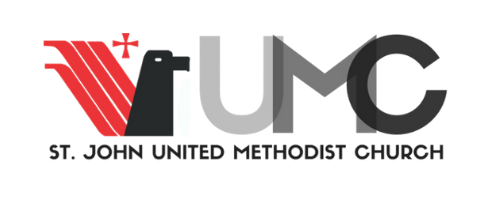“Those who hide their sins won’t succeed, but those who confess and give them up will receive mercy.” - Proverbs 28:13
Over the last four months of intentional learning, reflection, and advocacy on racial justice with the St. John Anti-Racism book group, I’ve been struck over and over again by how different people recount history differently. I’ve discovered that nearly all of the history that I know and tell has been taught to me almost entirely from the white perspective. It’s clear we’ve worked hard to ignore and forget the perspective of others. We've hidden the unfavorable parts of our story that reveal injustice and oppression of people of color and indigenous communities across our country and across our state.
Like many of you, I grew up referring to this federal holiday in October as Columbus Day, a day we often had off from work or school in commemoration of Christopher Columbus’ arrival in the Americas in 1492. We often referenced this “discovery” of America as reason to celebrate. However this celebration is not shared by all. Indigenous people lived on this land far before Columbus landed, and live here still today. They do not believe that Columbus discovered America, they clearly already lived here! Their experience of Columbus and the European settlers was largely not one of joy and abundance, but one of violence and genocide.
That’s why I acknowledge today as Indigenous People’s Day. A day where I set aside time to learn more about the history and culture of indigenous people. It’s an opportunity to participate in de-colonization, as I acknowledge the harm done, and seek to understand the history, culture, and gifts of indigenous people. And I believe it’s the work God has called us to do. As we live out our baptismal calls to resist evil, injustice, and oppression in whatever forms they present themselves, we somberly confess the sins of the past and look forward to the hope of communion for all people through the mercy of our Lord Jesus Christ.
On this Indigenous People’s Day, let us lift our voices in prayer:
O Great Spirit, God of every people and every tribe,
we come to you as your many children,
to ask for your forgiveness and guidance.
Forgive us for the colonialism that stains our past,
the ignorance that allowed us to think
that we could claim another’s home for our own.
Heal us of this history.
Remind us that none of us were discovered
since none of us were lost,
but that we are all gathered within the sacred circle of your community.
Guide us through your wisdom to restore the truth of our heritage.
Help us to confront the racism that divides us
as we confess the pain it has caused to the human family.
Call us to kinship.
Mend the hoop of our hearts
and let us live in justice and peace.
Through Jesus Christ, the One who came
that all people might live in dignity.
Amen.
(From the Episcopal Church: Resources on the Doctrine of Discovery)
If you would like to learn more about Indigenous perspectives, I highly recommend checking out these resources from Native Movement, an organization based out of Fairbanks: https://www.nativemovement.org/resources
There are a number articles, books, podcasts, and films listed here that can increase our knowledge and broaden our perspective on Native issues in Alaska and in our country.
Peace,
Pastor Emily


